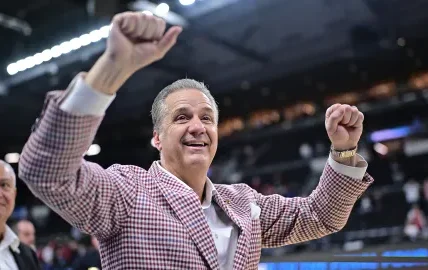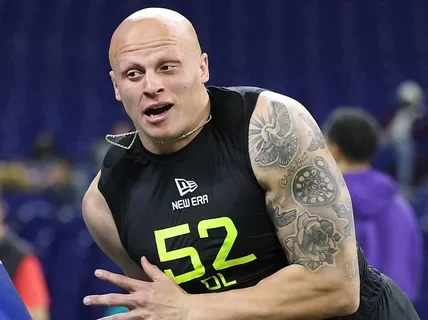The University of Arkansas’ NIL collective, Arkansas EDGE, has officially escalated its dispute with former quarterback Madden Iamaleava, seeking roughly $200,000 in repayment following his decision to transfer to UCLA. The case signals a new, aggressive approach to NIL contract enforcement at a time when the rules of college sports are rapidly shifting.
Fallout From a Family Decision
The dispute traces back to the Iamaleava family’s larger movement within college football. After Nico Iamaleava’s unexpected transfer from Tennessee to UCLA earlier this month, his younger brother Madden followed suit, entering the transfer portal after spending only a few months at Arkansas.
Madden, who enrolled in January, had signed a one-year NIL agreement with Arkansas EDGE reportedly worth around $500,000. According to contract terms, players departing before completing their commitments could owe 50% of the remaining contract value. With roughly $400,000 left on Madden’s deal at the time of his transfer, Arkansas EDGE is demanding close to $200,000.
Razorbacks Set a New Tone
Athletic director Hunter Yurachek publicly backed the collective’s enforcement efforts last week, emphasizing the importance of honoring contractual obligations. In his statement, Yurachek noted that pursuing such buyouts is “vital in our new world of college athletics,” signaling a more aggressive posture from schools and collectives alike.
To strengthen its case, Arkansas EDGE has retained attorney Tom Mars, a veteran of high-profile college sports disputes. Mars is no stranger to the Iamaleava family, having previously represented Nico in matters involving the NCAA. This time, however, Mars is tasked with recovering funds from the younger Iamaleava on behalf of Arkansas.
Complexities in NIL Contract Enforcement
The legal battle over Madden Iamaleava’s NIL contract exposes broader uncertainties in the rapidly evolving NIL space. Many agreements include liquidated damages clauses, but enforcing them remains untested territory. Proving specific financial losses tied to a player’s exit could be difficult, and the nature of NIL rights – focused more on marketing than on field performance – could open avenues for Madden’s legal team to contest the demand.
Sources indicate that discussions between Mars and Madden Iamaleava’s legal representatives are scheduled for this week, with both sides likely weighing the risks of prolonged litigation against a possible settlement.
A New Era in College Sports Disputes
Regardless of the outcome, Arkansas’ pursuit of buyout funds marks a significant development. As college athletics prepares for broader changes, including direct school-to-athlete compensation models under the anticipated House settlement, cases like Iamaleava’s will likely shape how NIL contracts are structured and enforced moving forward.
The next steps in this dispute could set a powerful precedent for how NIL-related exits are handled in the future.


